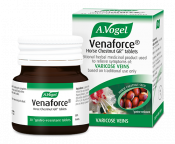An introduction to varicose veins and swollen ankles and feet
Aside from the visible symptoms, there are a number of other symptoms that you may experience as a result of your varicose veins. One of these is swelling in the ankles and feet.
This swelling is attributed to the poor circulation in the legs that is often both a cause and effect of varicose veins. It is usually not serious, but you should consult your GP if swelling appears suddenly, is severe, does not improve or is causing pain or discomfort.
Why can varicose veins cause swollen ankles and feet?
Varicose veins are damaged veins; they are stretched, enlarged or swollen, and this causes their valves to leak. This allows blood to flow backwards, further damaging the vein. Sometimes blood and other fluids leak out of the vein and into the surrounding tissue. It is this leaking and pooling that causes swelling of the ankles and feet as gravity pulls these fluids down.
This symptom is particularly common at the end of the day, especially if you have spent much of it sitting or standing still.
Self-help tips
There are a number of things you can do to reduce the swelling in your ankles and feet.
- Firstly, try elevating your feet above your heart whenever you get the chance. This allows gravity to pull blood towards the heart from the legs, giving the veins in your legs a rest. It should also allow any build-up of fluid to drain away from the feet and ankles. If you can manage to elevate your legs above your heart, for example if you work at a desk, try at least elevating them slightly, by propping them on a foot rest. This slight elevation will still aid circulation
- Wearing compressions socks may also help as these encourage the upward movement of blood so may help to prevent pooling of blood and fluid in the lower legs
- Improve the circulation in your legs by getting more exercise. Cycling and swimming are great for circulation, but less strenuous exercise such as a walk or yoga will also help greatly. Even simple leg exercises at your desk can be beneficial: try flexing your ankles up and down, or bending and straightening your legs. Anything that gets your legs moving for a couple of minutes will help boost circulation
- Make sure you drink enough water – lack of water will cause the concentration of salt in your body to increase, triggering your body to retain as much water as possible, which can lead to swelling. Likewise, try to reduce the salt in your diet by avoiding processed foods, salty crisps or snacks, smoked meats and any other food that is typically high in salt.
How can herbal remedies help?
There are a number of natural/herbal remedies you can use to try to relieve the swelling in your ankles and feet.
Horse Chestnut is great for varicose veins in general. It improves blood flow in veins, managing and improving the symptoms of varicose veins. Horse Chestnut extract is available in A.Vogel’s Venaforce tablets, or in Venagel, a gel form of the same extract. This can be great for soothing aching legs at the end of a long day.
Please note: Venaforce is not suitable for pregnant women, but Venagel is safe to use.
Conventional treatment
If these self-help tips and herbal remedies are not alleviating your symptoms, you should consult your GP. This is important to ensure that the varicose veins are the cause of this swelling, and not another condition.
Rather than try to treat this symptom with conventional medicine, you would be better treating the varicose veins themselves, as this will reduce the symptoms you are experiencing. The treatments available for varicose veins range from wearing compression stockings or tights to a number of surgical options. These treatments are detailed on our varicose veins treatment page.








